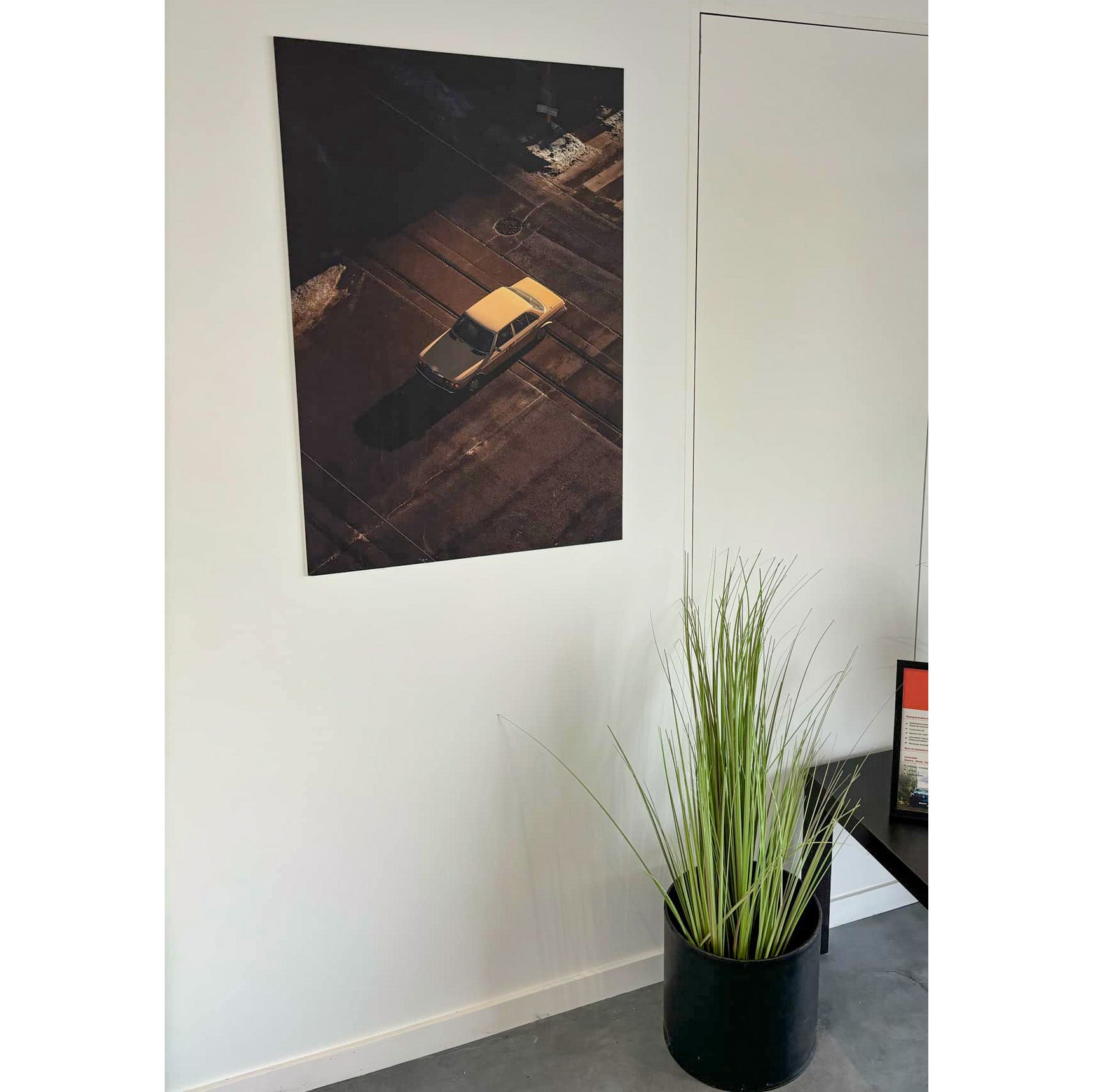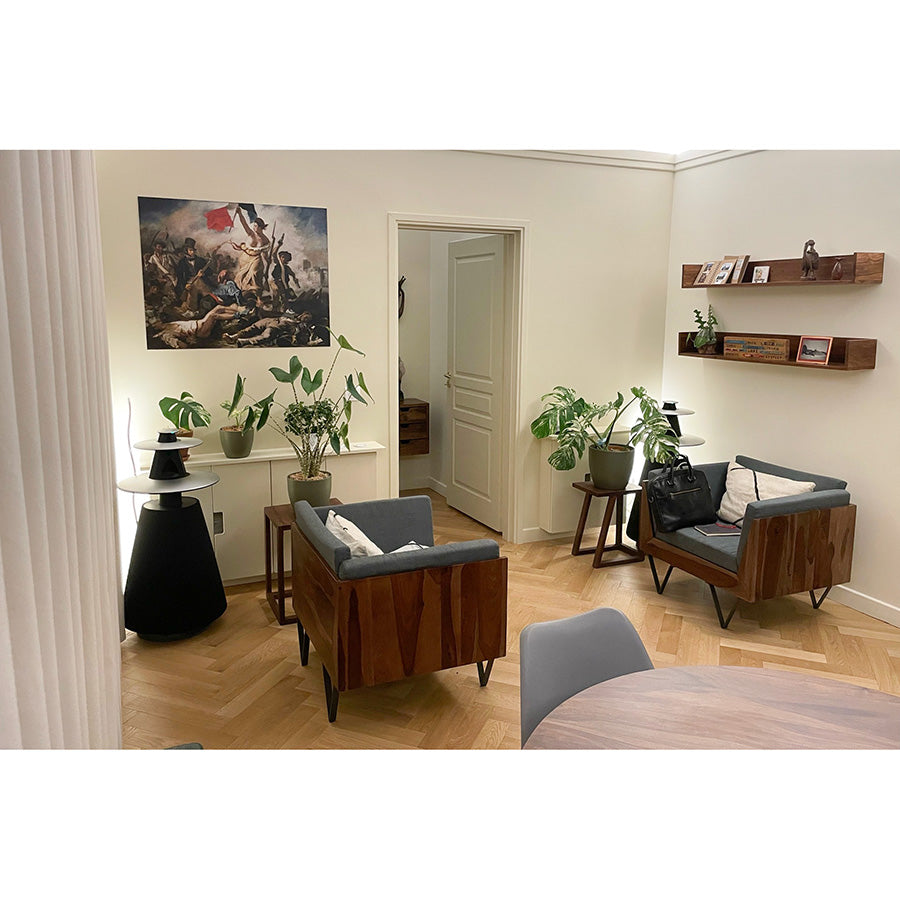Art print | Self-portrait - François-Joseph Navez


View from behind

Frame (optional)
François-Joseph Navez's self-portrait is a work that transcends the simple act of self-representation. This painting, a true mirror of the artist's soul, invites the viewer to delve into a universe where introspection and creativity meet. Navez, a Belgian painter of the 19th century, masterfully captures not only his image but also the essence of his being, revealing the struggles and aspirations of an artist in search of truth. Through this piece, he offers us a penetrating look into his personality, while also bearing witness to the evolution of painting in his era.
Style and uniqueness of the work
Navez's style is distinguished by fine detail and mastery of light play, giving his art print an almost lifelike dimension. The artist employs a rich and nuanced color palette, creating delicate shadows that sculpt his face with remarkable precision. Navez's features, both gentle and assertive, reflect deep introspection. His gaze, full of emotion, seems to question the viewer, inviting reflection on identity and art. The work also stands out for its psychological approach, where each brushstroke appears loaded with meaning, revealing the inner thoughts of the artist. This ability to blend technique and emotion makes this art print a centerpiece of his oeuvre, continuing to inspire and move viewers.
The artist and his influence
François-Joseph Navez is often regarded as one of the pioneers of Romanticism in Belgium. His training with masters such as Jean-François Portaels influenced his artistic approach, which combines tradition and innovation. Navez established himself on the artistic scene of his time, not only through his works but also through his role as a teacher and mentor. He trained many artists, passing on his love for painting and his sense of aesthetics. His influence extends beyond his era, inspiring generations of artists to explore the depths of their own psyche through art. The self-portrait, in particular, embodies this desire to reveal oneself, to confront oneself.

Matte finish

View from behind

Frame (optional)
François-Joseph Navez's self-portrait is a work that transcends the simple act of self-representation. This painting, a true mirror of the artist's soul, invites the viewer to delve into a universe where introspection and creativity meet. Navez, a Belgian painter of the 19th century, masterfully captures not only his image but also the essence of his being, revealing the struggles and aspirations of an artist in search of truth. Through this piece, he offers us a penetrating look into his personality, while also bearing witness to the evolution of painting in his era.
Style and uniqueness of the work
Navez's style is distinguished by fine detail and mastery of light play, giving his art print an almost lifelike dimension. The artist employs a rich and nuanced color palette, creating delicate shadows that sculpt his face with remarkable precision. Navez's features, both gentle and assertive, reflect deep introspection. His gaze, full of emotion, seems to question the viewer, inviting reflection on identity and art. The work also stands out for its psychological approach, where each brushstroke appears loaded with meaning, revealing the inner thoughts of the artist. This ability to blend technique and emotion makes this art print a centerpiece of his oeuvre, continuing to inspire and move viewers.
The artist and his influence
François-Joseph Navez is often regarded as one of the pioneers of Romanticism in Belgium. His training with masters such as Jean-François Portaels influenced his artistic approach, which combines tradition and innovation. Navez established himself on the artistic scene of his time, not only through his works but also through his role as a teacher and mentor. He trained many artists, passing on his love for painting and his sense of aesthetics. His influence extends beyond his era, inspiring generations of artists to explore the depths of their own psyche through art. The self-portrait, in particular, embodies this desire to reveal oneself, to confront oneself.









